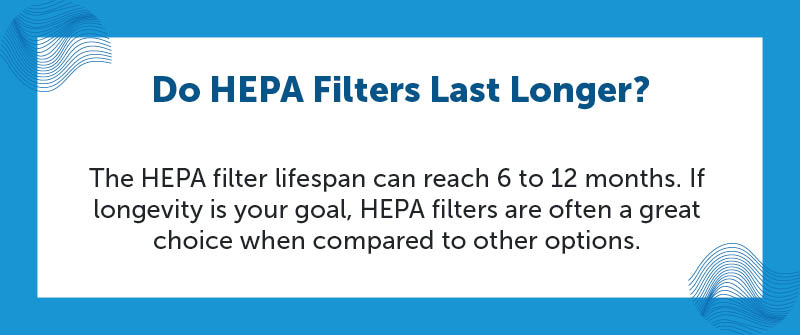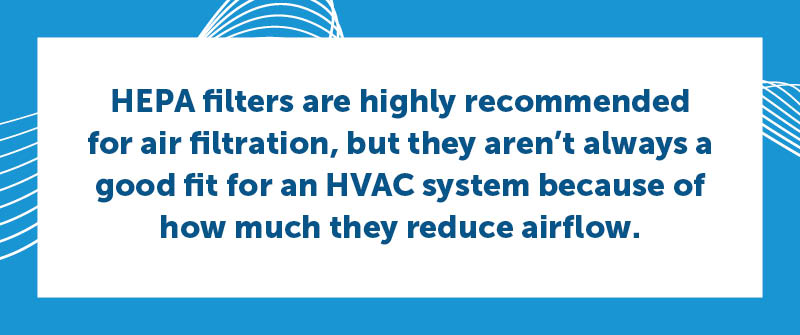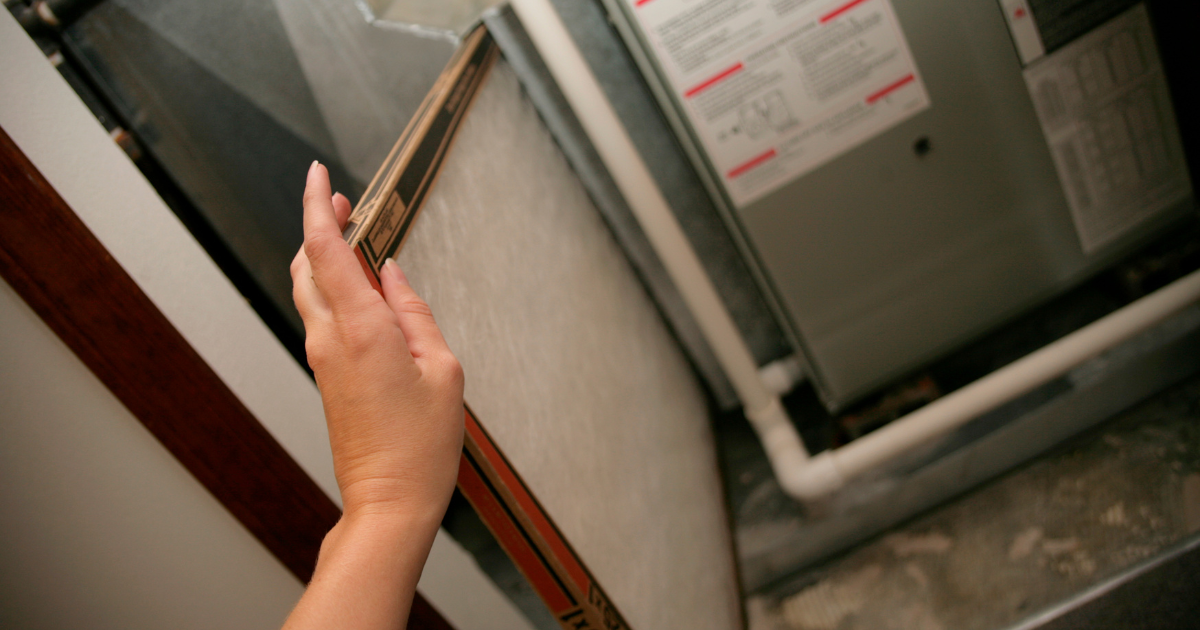Changing the ac filters & furnace filters in the HVAC equipment in your home won’t just make your home a safer place to play and rest; it will also save you money in the long run. Fresh filters are essential for the following reasons:
- Cleaner Air: When you swap out your air filters at the right time, you can keep dust and other grime out of the air you breathe. According to the National Center for Healthy Housing, dust can aggravate respiratory ailments, such as allergies and asthma. Change your filters on a regular schedule to help keep you—and your family—healthy.
- Energy Efficiency: Clogged air filters require more energy to send air through your HVAC system. In fact, the Department of Energy reports that regular air filter changes can reduce air conditioner energy consumption by 5% to 15%. As electric and oil prices continue to rise, it’s important to save whenever you get the chance.
- Appliance Longevity: Dirty filters mean that your appliances have to work harder, which strains their mechanisms. When HVAC equipment breaks down, dirty filters are most often the guilty culprit. Swap filters proactively to avoid overheating, airflow problems, and premature mechanical wear.
But how often do you need to change the air filters in your home for the best results? Which filters keep your air clean for longer, so you don’t have to throw money in the trash alongside ineffective filters? What is the most effective type of air filter? In this article, we explore the answers to these questions and more.

What Is the Most Effective Type of Air Filter?
High-efficiency particulate air (HEPA) filters are the most effective type of fiberglass air filters. According to the United States Environmental Protection Agency, HEPA filters have a worst-case efficiency rating of 99.97 for all particle sizes. In other words, these air filters trap nearly all mold, dust, pollen, bacteria, and other airborne grime. However, no true HEPA air filter is used in residential applications.
Comparative effectiveness guidelines for air filter types focus on how efficiently they remove particulates from circulation. However, they don’t include standards for comparing the removal of gasses or other pollutants. That being said, you can compare air filter options based on the following ratings:
- Minimum Efficiency Reporting Value (MERV)
- Filter Performance Rating (FPR)
When reviewing ratings, MERV is the industry standard for filtration air filter efficiency and effectiveness, while FPR also includes factors like filter lifespan.
Even when using the best options available, one of the most significant factors affecting air filter effectiveness is cleanliness. As particulates build up on a filter, both the filter and the air circulation equipment deteriorate at a higher rate. Refresh your air quality today with long-lasting air filters from Discount Filters.
Indoor Air Quality: Do HEPA Filters Last Longer?
HEPA filters last longer than many other types of air filters. Typically, it’s best to change your air filters every 90 days. However, the HEPA filter lifespan can reach 6 to 12 months. If longevity is your goal, HEPA filters are often a great choice when compared to other options. Here’s how long the average filter lasts before needing a change:
- Fiberglass Filters: 1 Month
- Pleated Filters: 3 Months
- Electronic Air Cleaner Filters: 6 Months
- HEPA Filters: 12 Months
Of course, environmental conditions like having lots of pet dander or an air purifier can impact air filter lifespan. The best way to have your air filter last longer is to use filters that are built to last! Explore your options for HEPA filters.

Which Furnace Filter Lasts the Longest?
While HEPA filters work well for air filtration systems, filters with high MERV or FPR ratings are best for furnaces. That’s because HEPA filters often restrict too much airflow for heating systems, so they’re best saved for a dedicated air filtration system.
The longevity of the different types of furnace filters is affected by material type and thickness. The main types of furnace filters for your home include:
- Disposable Pleated Filters: Available in higher MERV ratings to filter out the majority of pollutants but should be changed every 90 days.
- Disposable Fiberglass Filters: Cheap but low MERV ratings mean these filters won’t cut it for families dealing with asthma and allergies.
- Electrostatic Filters: Reusable but require regular washing and maintenance every 90 days.
At Discount Filters, we typically recommend pleated filters with a MERV efficiency rating of 11 for the best combination of effectiveness and value.

What Filters Do HVAC Techs Recommend?
Current HVAC tech recommendations state that residents should use air filters with a MERV rating of 13 or higher, as endorsed by the American Society of Heating, Refrigeration, and Air Conditioner Engineers. To come to this recommendation, professionals cite ISO 16890-1:2016, which classifies systems based on particulate matter efficiency (OPM). According to these standards, an air filter or furnace filter with a MERV rating of 13 or higher is ideal for its effectiveness in reducing the presence of allergens and virus-containing droplets in the air.
While the benefits of a higher MERV rating are clear, they aren’t always the best choice. Some HVAC systems can’t accommodate these filters. In these cases, use filters with the highest MERV rating possible. HEPA filters are also highly recommended for air filtration, but they aren’t always a good fit for an HVAC system because of how much they reduce airflow. When shopping for your next filter replacement, consider the MERV rating, the required filter size, and your budget.
For High-Quality Air Filters that Last, Trust Discount Filters
Choosing the right air filter—and replacing it regularly—can have a significant impact on the quality of life for you and your family. At Discount Filters, our team is here to help you make the best decision. Give us a call with any questions you have or browse our online store for all your filtration needs. We’re always happy to help!

